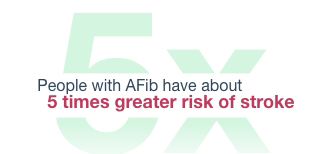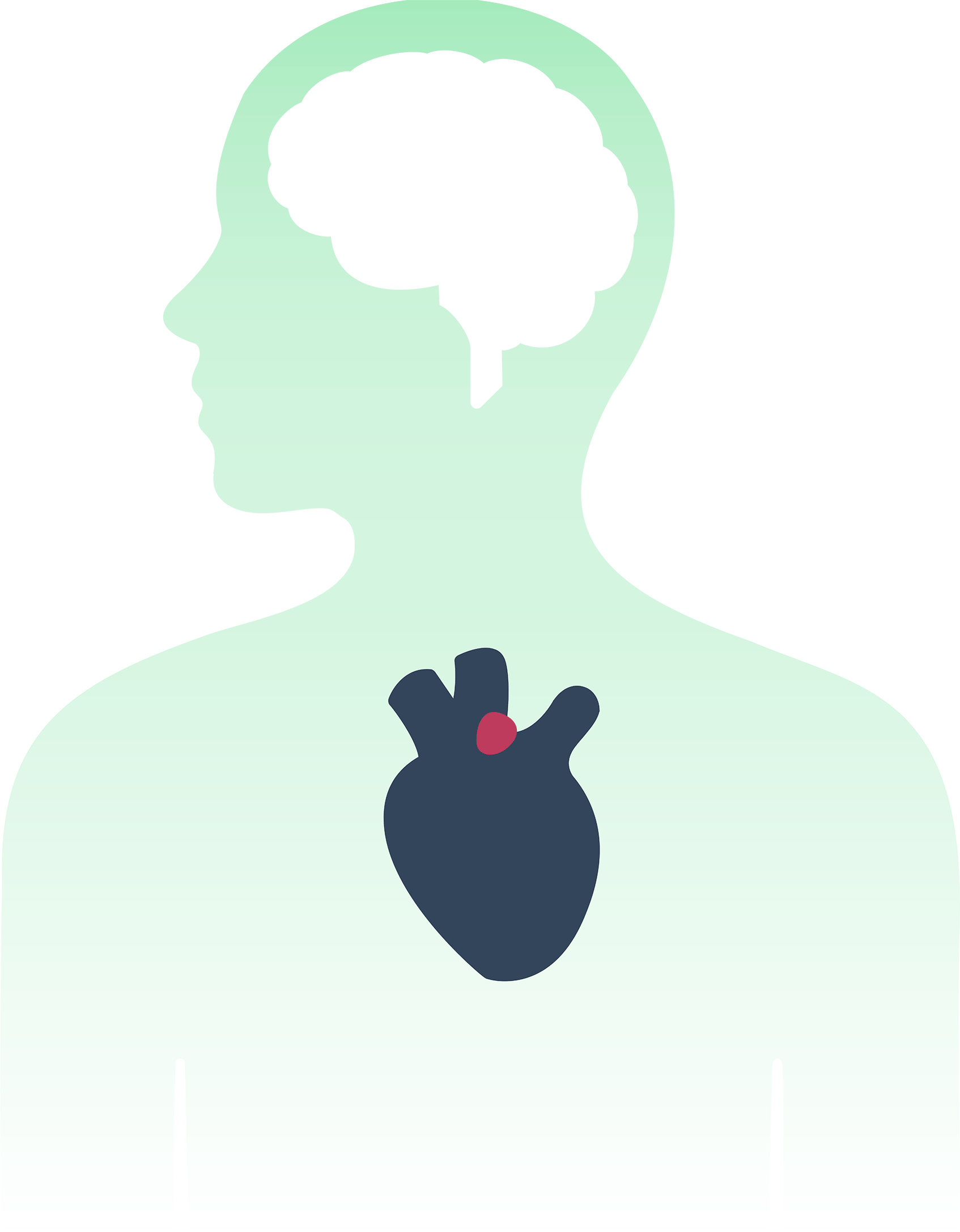What is atrial fibrillation (AFib)?
AFib is a type of irregular heartbeat that may cause the heart to beat faster than usual. It
is projected that by 2030, approximately 12 million people in the U.S. will have AFib. It is important to know that AFib increases the risk of stroke by about 5 times. Talk to a
doctor today.

WHAT ARE SOME COMMON SYMPTOMS OF AFib?
AFib may involve one or more of these common symptoms, and some people with AFib may not
experience any symptoms at all. While symptoms can come and go, the risk of stroke remains.
Irregular heartbeat
A feeling of your heart racing or skipping beats. This can happen when at rest or when performing physical activities.
Heart racing
A fast beating, fluttering, or racing heart. Similar to an irregular heartbeat, this symptom can happen at any time.
Chest pain
This symptom can appear in many forms, ranging from a sharp stabbing pain to a dull ache.
Shortness of breath
Often described as an intense tightening in the chest,
difficulty breathing,
breathlessness or a feeling of
suffocation.
Fatigue
A persistent tired or sluggish
feeling. If you are consistently
feeling overtired, it may be
considered fatigue.
Light-headedness
Can cause you to feel dizzy or
faint. Some people also feel
nauseated when feeling
light-headed.

EARLY MEDICAL ATTENTION MAY HELP REDUCE THE CHANCE OF AFib LEADING TO SOMETHING MORE SERIOUS, LIKE STROKE
Use this symptom guide to
help track your symptoms and
help
prepare for your next
doctor's appointment.
can tell you if these symptoms are
AFib, or another potentially serious condition.

WHAT ARE SOME RISK FACTORS FOR AFib?
There are some risk factors that may increase your chances of developing AFib. These include but are not limited to:
- Age 65 and older
- High blood pressure
- Diabetes
- Sleep apnea
- Heavy alcohol use
- Heart disease, such as congestive
heart failure and coronary artery disease - Prior heart attacks
- Smoking
- Obesity
- Overactive thyroid
How can AFib lead to a stroke?
AFib occurs when the upper chambers of the heart beat irregularly, and do not pump all of the blood to the lower chambers, causing some blood to pool and potentially form clots. These blood clots can travel to the brain, where they can cause a stroke. AFib-related strokes are often more severe compared to non–AFib-related strokes.


IF YOU ARE DIAGNOSED WITH AFib
AFib is generally a lifelong condition, and AFib-related stroke risk increases with age. That's why it's important to talk to a healthcare professional about options to help reduce the risk of AFib-related stroke.
Up to 95% of cases of AFib are not caused by a heart valve problem, also known as nonvalvular AFib. You can explore a website to learn about a prescription treatment option to reduce the risk of stroke due to AFib not caused by a heart valve problem.
















